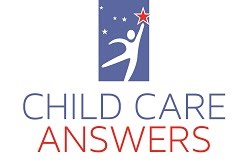The local Indiana Lions Clubs in our communities, in conjunction with the Indiana Eye and Tissue Transplant Bank, Inc. and the Indiana University Department of Ophthalmology offer FREE eye screenings for preschool children. The screening provides instant readings of the child’s eyes to determine the presence of possible eye disorders. No physical contact is made with the child and no eye drops or medications are used. The screening is approximately 85-90% effective in detecting significant factors that can cause a decrease in vision.
What kind of screening?
The Lions use the PediaVision screening device to identify children who may be at risk, and if left untreated, may lead to a lifetime of vision problems or even loss of vision. The PediaVision can detect near sightedness, far sightedness, astigmatism, and other amblyopia (dull vision) factors.
Why is it important to do preschool vision screenings?
The eye muscles that control the eye, optic nerve, and the area of the brain that gives us vision are completely developed by the age of six, no matter how perfectly or imperfectly. Vision deficiencies that may have occurred during development will be very difficult or impossible to treat after the age of 6, when the development has completed. Many of these problems when caught early, can be completely corrected, and the earlier they are diagnosed the better the chance of the correction, as well as the less expense in treatment.
Did you know?
More than 60% of children in the United States have not been examined by an optometrist or ophthalmologist by age 6. Most people think that when they take their child/children to the pediatrician that the pediatrician will discover vision conditions. Most pediatricians have only had a small amount of training related to the eyes, so vision problems are more likely detected and addressed by an optometrist or ophthalmologist.
Children do not know that they have a vision condition. You know when you need to go to the eye doctor because you have had previous experience at seeing well. You can tell the eye doctor when what he/she is doing is helping your vision. The young child doesn’t know how well they should be able to see. Most young children under the age of 5 are not capable of communicating effectively to solve the problem, or to even tell you that there is a problem.
Who can be screened?
Operation Kid Sight volunteers only screen children ages 1-5 years of age. The child has to be able to fixate (look at a specific object) which requires them to be at least one year of age. If they are older then 72 months, they may be more effectively screened by other methods.
How the screenings work:
The vision screenings can be conducted in several different ways. Typically the volunteers will set up screenings with child care providers (centers and homes.) They can also set up a community screening. Before any screening is done, each child must have consent from parents.
The screenings are conducted with a reading (a picture taken) of the child’s eyes while the child looks at the PediVision. If further examination is warranted, the parents are advised by mail or phone to refer to an eye doctor of their choice. All children/families will receive a follow after the screening from PediaVision.
(No doctor recommendations are made, just a referral.) The screening is neither a diagnosis nor an examination. It is simply a reading of the child’s eyes.
FREE?
The cost of the screening is paid in full by the Lions using funds raised by Lions in fundraising projects.
If parents or child care providers are interested in getting a screening scheduled, they can contact a local Lions Club. You may also contact Janice Chapman- State Program Coordinator of Operation Kidsight at 317-578-0491 or kidsight@sbcglobal.net.
5 years ago








